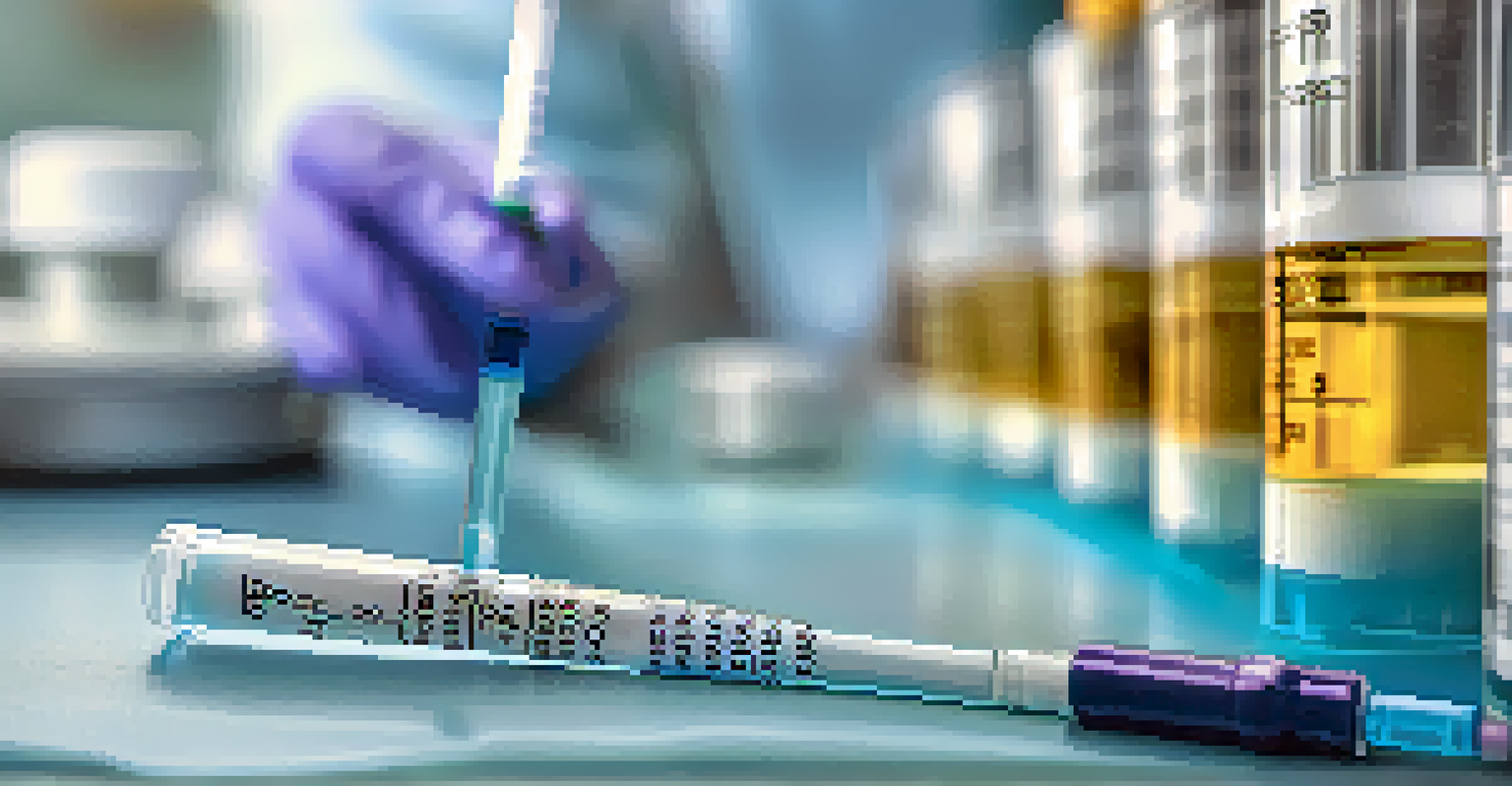What to Expect During Your First Preventive Health Check-Up

Understanding Preventive Health Check-Ups
Preventive health check-ups are routine visits aimed at catching health issues early. Think of it as a regular tune-up for your body; just like a car needs maintenance, so does your health. These check-ups can help identify risk factors and diseases before they become serious, giving you the chance to address them proactively.
An ounce of prevention is worth a pound of cure.
During these visits, healthcare providers assess your overall health, which may include physical exams, lab tests, and discussions about your lifestyle. The goal is not just to treat illnesses but to promote a healthier lifestyle. By understanding your health status better, you can take steps toward improved well-being.
It’s important to remember that these visits are not just for when you're feeling unwell. Just like visiting a dentist regularly can help prevent cavities, regular health check-ups can help prevent more serious conditions down the line.
Preparing for Your Check-Up
Preparation is key to making your first preventive health check-up successful. Start by gathering your medical history, including any medications you’re taking and previous health issues. This information will help your healthcare provider tailor their assessment to your specific needs.

It’s also a good idea to write down any questions or concerns you have about your health. This way, you won’t forget to address important topics during your visit. Just like packing for a trip, being prepared can help ease any anxiety you might feel about the appointment.
Preventive Check-Ups are Essential
Routine preventive health check-ups help identify potential health issues early, allowing for proactive management.
Lastly, consider your schedule for the day of the check-up. Arriving well-rested and relaxed can help ensure you get the most out of your visit. A calm mindset can make it easier to discuss any health concerns openly.
What Happens During the Check-Up
When you arrive for your check-up, you’ll typically start by checking in at the reception. After a brief wait, a healthcare professional will guide you to an examination room. This initial process can feel a bit like stepping onto a stage in front of an audience, but remember, the focus is entirely on you and your health.
The greatest wealth is health.
Once in the room, the healthcare provider will take your vital signs, such as blood pressure and heart rate, to assess your current health status. They may also conduct a physical examination, which can include checking your weight, height, and other indicators that help gauge your well-being. Think of this as a health snapshot, giving you and your provider a clearer picture of where you stand.
After the examination, you’ll have a chance to discuss any concerns or symptoms you may have. This dialogue is crucial; being open and honest allows your provider to offer the best recommendations for your health moving forward.
Laboratory Tests You May Encounter
Depending on your age, gender, and health history, your check-up may include laboratory tests. Common tests involve blood work to check cholesterol levels, blood sugar, and other vital markers. It’s like gathering clues to solve a mystery about your health, and these tests can reveal important information.
During the appointment, your provider will explain which tests are necessary and why they’re important. Understanding the purpose behind each test can help ease any apprehensions you may have about the process. Just like learning the rules of a game enhances your experience, knowing what to expect can make you feel more comfortable.
Prepare for Your Check-Up
Gathering your medical history and questions beforehand ensures a productive discussion with your healthcare provider.
Once the results come in, your provider will discuss them with you. This is an excellent opportunity to learn more about your health and any necessary steps you might need to take. Remember, knowledge is power when it comes to managing your health.
Discussing Your Health Goals
A crucial part of your preventive check-up is discussing your health goals with your provider. This conversation is an opportunity to outline what you want to achieve, whether that's weight loss, improved fitness, or managing a specific condition. Think of it as setting a roadmap for your health journey.
Your healthcare provider can offer tailored advice and resources to help you reach those goals. They may suggest lifestyle changes, nutrition plans, or exercise routines that fit your unique situation. Just like a coach guides an athlete, your provider is there to support you on your health journey.
Setting realistic and achievable goals can lead to a greater sense of accomplishment. Remember, every small step counts, and having a supportive partner in your healthcare provider can make a significant difference.
Follow-Up Appointments and Next Steps
After your first preventive health check-up, you may need to schedule follow-up appointments based on the findings. These visits are essential for monitoring any changes in your health or adjusting your health plan as needed. Think of these follow-ups as check-ins on your progress.
Your healthcare provider will discuss the frequency and nature of these follow-ups, ensuring you stay on top of your health journey. They might recommend additional tests or screenings based on your individual needs. Just like regularly watering a plant helps it grow, consistent follow-ups can nurture your health.
Set Health Goals Together
Discussing your health goals with your provider creates a roadmap for achieving a healthier lifestyle.
Staying proactive about your health can lead to better outcomes and a greater sense of well-being. Taking control of your health is a step in the right direction, and those follow-ups are part of that journey.
Embracing a Healthier Lifestyle Post Check-Up
After your check-up, it’s a great time to embrace a healthier lifestyle. Integrating small changes, like incorporating more fruits and vegetables into your diet or adding a daily walk, can have a significant impact on your overall health. Think of these changes as building blocks for a healthier future.
Your healthcare provider may offer additional resources, such as classes or community programs, to support your journey. This support can help you stay motivated and accountable, making it easier to stick to your goals. Just like having a workout buddy can boost your exercise routine, having resources can enhance your health journey.

Remember, adopting a healthier lifestyle is a marathon, not a sprint. Celebrate your progress, no matter how small, and stay focused on your long-term health goals. Every positive change you make contributes to a healthier you.